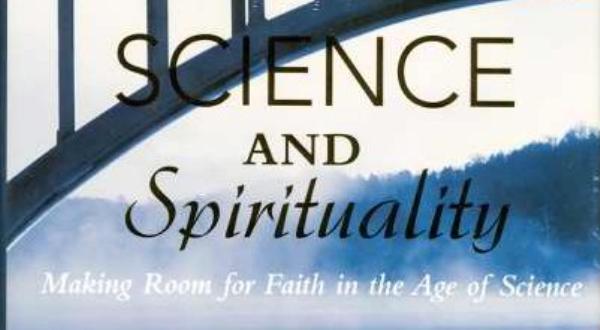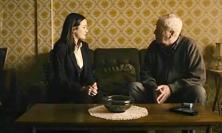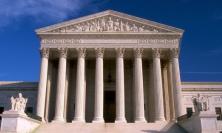It’s an interesting time to be a theist, I don’t care what they say. It hasn’t always been the case. I first found myself grappling with the arguments for the existence of God back in the mid-1980s. I am not sure what it was in the Zeitgeist that made the question seem otiose but undoubtedly people in those days were, for the most part, utterly uninterested in the harmless eccentricity called faith. Meanwhile, it was not apologetics that made the juices flow for many believers but the latest in cutting edge theology, whether it came from the television series of Don Cupitt – a luminous example of that seemingly long gone mainstay of Anglican culture, the atheist priest – or from the liberation theologians of Latin America. But for normal people a patrician consensus held the day: decent, civilised people could be expected to behave in a decent and civilised way, regardless of their private metaphysical proclivities. It made the world a cosy place for the faithful and provided a climate in which visceral debate would have come across as a breach of form.
How different things look now that most people, for good or for ill, have come round to the view that God really does make a difference. It was probably the Satanic Verses affair that first began to unsettle the tranquil landscape, stirring the suspicion that something important might hang on the question of God’s existence. We certainly talk about God more than we did then but it would be an understatement to say that the talk in question is often cheap. As a very post-Christian Britain prepares (or more accurately, omits to prepare) for the visit of the Holy Father, the most luridly hyperbolic invective seems to pass unremarked and unchallenged. The peril faced by today’s religious believers is not that of being marked out as irrelevant but of being flippantly classed alongside genocidal dictators and Nazi war criminals. And because it’s not always easy to resist the pull to respond in kind, both ‘sides’ end up falling into tribalism, trading shabby ad hominem insults and weary rhetoric.
So thank God, if that doesn’t beg the question too much, for Michael Ruse, a British-born philosopher of biology and author of a number of books about what science is and is not entitled to claim. Ruse is particularly interested in the implications of evolutionary theory and a list of his works includes the self-explanatory Can a Darwinian be a Christian?[1] He is also an atheist, though decidedly not one of the ‘new’ variety. (As a matter of fact, he has come in for more than his fair share of criticism from those quarters for having had the temerity to try to understand what religious people actually believe; dialogue lets the side down, don’t you know.)
I think it is fair to say that Ruse’s lack of faith is actually the selling point of the book. Here, after all, is a convinced atheist who happens to be persuaded that belief in God is, nevertheless, a rationally valid and interesting conjecture. In our hidden-agenda-conscious day, we assume unhesitatingly that writers in something like the science/religion debate are not genuinely open-minded on the matter. Whether it’s the estimable John Polkinghorne, a scientist and Anglican priest who does believe in God, or Richard Dawkins, who, (need it be said?) does not, they would say that, wouldn’t they? ‘If only someone competent and impartial could just tell us the simple, objective truth!’ you might think. It is easy to see why an atheist philosopher with an interest in the rationality of belief might command credibility as an honest broker.
Things get even more promising when Ruse clearly sets out to distance himself from that all too easy option of seeing religion and science as mutually insulated, ‘non-overlapping magisteria’, as Stephen Jay Gould calls them: one tackles ‘how’, the other ‘why’ questions. No, for Ruse, science and religious faith both bear on the world and, at least theoretically, run the risk of coming into conflict, so they need to be aware of each other and maybe even to challenge the other's pretensions should they ever get above themselves. This insight is greatly to his credit, at least from a Christian perspective, and it frames the contents of the rest of the book as Ruse sets out to defend the reasonability of religious belief not just in spite of, but even because of, what modern science has to say.
One of the odder things about the new atheists is their confidence in dealing with ‘religion’ per se, as if their devastating critique were apt to demolish everything in its path, the meditative practice of the Theravada Buddhist every bit as much as the covenantal hope of the Orthodox Jew. Once again, Ruse’s judgement is acute. He is clear that he is not talking about religion in a generic way (an unwieldy and unnecessary undertaking) but specifically Christian theism. To this end, he dialogues freely and generously with Augustine, Aquinas, Luther, Calvin and Pope John Paul II. It is a brave and honest approach, engaging with what Christians really believe, so much more hard work than making do with the chimeras of the polemical imagination. How refreshing Ruse is compared to his co-non-religionists who, more often than not, content themselves with constructing straw men for ritual execution.
But as one would expect, it is Ruse’s lucid discussion of science, its history and method that is most interesting and for most readers he is likely to break new ground. In his view, the modern scientific enterprise is the outworking of a metaphorical manoeuvre, the proposition that reality is best interpreted as a kind of machine. This mechanical metaphor has, since the day of Descartes, been extended to account for animal life and even, in the work of Charles Darwin, to the origins of human life, usurping the place of a previous ‘research programme’ based on the very different and more traditional metaphor of organism (a paradigm which periodically threatens to resurface). ‘Science’, then, is not just a synonym for ‘reason’ as it is all too often assumed to be by the new atheists, nor even primarily a matter of empirical research, but an exercise in metaphorical exploration.
Does that mean the world is a kind of machine? Not quite. Thinking about animals as machines or about the brain as a computer isn’t, on Ruse’s account, a matter of truth or correspondence. From a literary point of view, metaphor is, after all, essentially a matter of what something isn’t, more than what it is. Every metaphor is necessarily a cognitive untruth. Its power lies in its capacity to instigate enquiry and generate insight in the human mind, and it just so happens that thinking about the world as a machine has generated rather a lot of fruitful insight in the last few centuries. By contrast, thinking about living beings in an organic way, with a concern for what Aquinas calls ‘final causes’ (what we might call ‘ends’ and ‘purposes’) isn’t, for some reason, quite as fertile.
The flipside of this analysis is that every metaphor has its innate limits. If you throw in your lot with the metaphor of mechanism then you shouldn’t be surprised when it proves impossible to account for the aspects of reality which are not conducive to mechanical thinking. The mistake which scientism makes is to suppose the basic metaphor invoked by its method to be exhaustive rather than one important window among others. So, Ruse concludes, modern science can’t say it all; it’s hard to believe anyone ever seriously imagined it could. Mechanism cannot be expected to unlock everything that can be known of animal, let alone human life. Hence there is space for other significant discourses, including that of religious faith, to say what science isn’t qualified to.
To my mind, this takes us in the direction Ruse has already dismissed of treating science and religion as discourses isolated from each other. His notion that knowledge is always metaphorical would suggest a certain difficulty in inter-communication between the domains of different governing metaphors. How, in practice, can you hope to bring two or more metaphorical universes into meaningful conversation? Ruse avoids obviating the tension between his stated objective and the consequences of his method by not attempting to show how theology is a metaphorical exercise, and indeed, by not treating the question of epistemology in any systematic way. Instead, he limits the claims of theology to a few discrete cognitive assertions, a kind of supplement to the rational pursuit of scientific truth which can either be defended as rationally licit or simply omitted. But the fault line, to my mind, still runs through his argument.
For Ruse, one of the most obvious instances of the limits of the mechanical metaphor arises with regard to the question of consciousness. The machine metaphor can never fill the gap between matter and consciousness because mechanical thinking, being strictly materialist, excludes the latter from the outset. This, therefore, makes room for religious speculation as to God’s direct causation of souls. Science could have nothing to say about immaterial souls by definition. Consequently, if you are so inclined, Ruse gives you the green light to speculate as much as you like. Understandably, the committed atheist that Ruse is betrays a certain lack of enthusiasm for the exploit (p.224). But isn’t this indicative of the ‘non-overlapping magisteria’ approach? The problem the mechanical, evolutionary worldview poses for theology lies, surely, at the imaginative level. In a universe conceived as being in a state of perpetual unfolding and emergence, arbitrary, local, divine intervention is just very hard to imagine. It has lost the credibility it had for the medieval imagination and this imaginative dissonance has to be dealt with, otherwise the crisis of faith that is all around us can only deepen. That’s not Ruse’s concern, of course, but it should be for any religious person seeking solace in his argument. Faith as a doubtful optional extra is doomed.
Ruse has other tricks up his sleeve and he does deliver on his promise to show that Christian belief has something positive to gain from the conversation with science. Chapters 7 and 8 are devoted to an exploration of various specifically theological issues in the light of the mechanical metaphor: the divine attributes, the problem of evil, morality, the soul, eternity and mystery. To give an example of how this is fleshed out, Ruse argues that the logic of Christian theism is enhanced rather than undermined by the evolutionary worldview. Take the knotty question of theodicy, of how a good and all-powerful God can be said to tolerate evil in the world. Christian theology has traditionally appealed to the idea that God allows the possibility of suffering in order to grant freedom to human beings. Far from sabotaging this defence, Ruse argues that an evolutionary philosopher like Daniel Dennett (no friend of the author) actually makes it more compelling by giving a scientific account of exactly what kind of freedom evolution has bequeathed human beings. As Ruse ponders,
…ants are like cheap rockets that are aimed at the target, but if the target moves they miss it because they cannot change direction. Humans are like expensive rockets that have homing devices to track a moving target. Both rockets do what they do because of unbroken law but the expensive rockets – aka humans – have a dimension of freedom that the inexpensive rockets – aka ants – do not. (pp.200-1)
It’s an interesting line of reflection, this thoroughly immanentist understanding of human freedom, but does it achieve what Ruse wants it to? I don’t think so. The kind of freedom with which the theological proposition is concerned is moral (human beings are free to be morally good) and theological (God does not impose Himself upon us but leaves us free to reject Him). They have nothing much, as far as I can see, to do with the kind of tactical freedom which Dennett so helpfully describes. At the very least, Ruse probably needs to go into more detail. For the time being this sort of loose end puts a question mark over his claim to have put theology and science into genuine dialogue.
So, what is the believer to make of this? Simple human compassion will make you want to defend Ruse from the inevitable barrage of abuse that will come his way, but lest we get too tribal, we theists ought to remember that Ruse is not principally talking to us. Real, living faith is not fruitfully understood as a series of cognitive assertions, optional extras built on a rational foundation to which everyone else, atheist, agnostic or believer, can assent. Christian faith, though it is certainly reasonable, is normally the issue of an encounter with a person, a proclamation, an experience of love. Faith infuses reason; it doesn’t just hang around passively waiting for reason to do its own thing. It shapes the human imagination, building character and igniting hope. It grabs hold of us and fashions the world anew. In this sense, Ruse doesn’t help the cause of faith; he never said he would.
That said, his presentation of aspects of contemporary Christian belief is generous and, for the most part, admirably accurate (though I took exception to the implication that Catholics are Pelagians on p.227), and for that any reader stands to learn something important. Given that he is not really talking about ‘faith’ at all, his real accomplishment is in raising the tone of a debate which has come perilously close to burlesque, challenging proselytising non-believers to be rather more circumspect in some of the assertions they make.
A last, albeit minor gripe: the title of the book is misleading. Ruse’s argument never, as far as I can see, touches on ‘spirituality’ at all. It’s about religious belief. I can only imagine that the publishers wanted to avoid the now somewhat limp ‘science and religion’ tag, but it’s a shame to use the ‘S’ word as though it had no meaning of its own.
Damian Howard SJ is a member of the Thinking Faith editorial board, lecturer at Heythrop College, University of London, and author of the forthcoming, Being Human in Islam: the impact of the evolutionary worldview.






